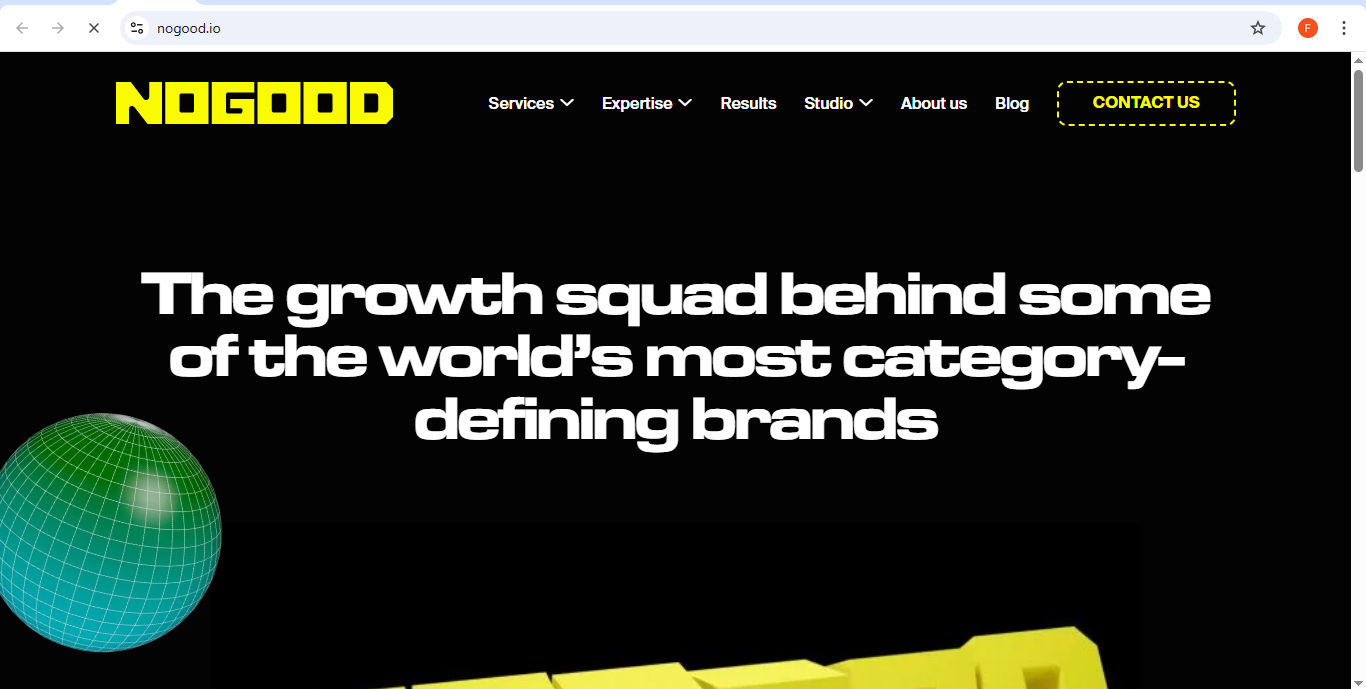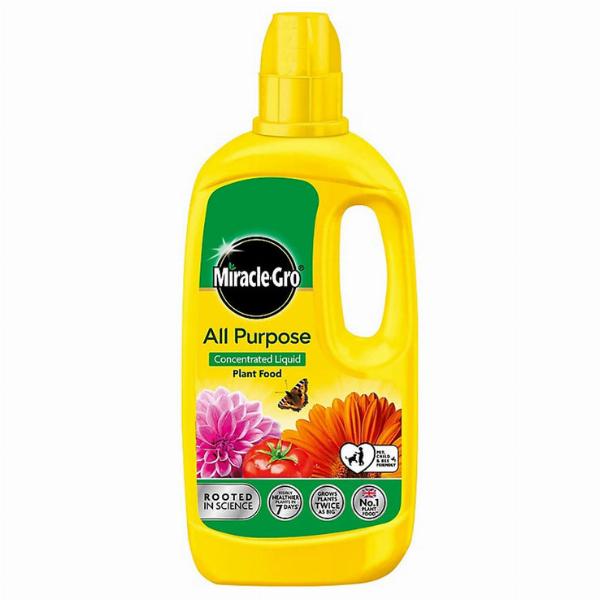Cherien Dabis Hopes Her New Film ‘All That’s Left of You’ Makes the ‘Palestine Origin Story’ Mainstream Onscreen
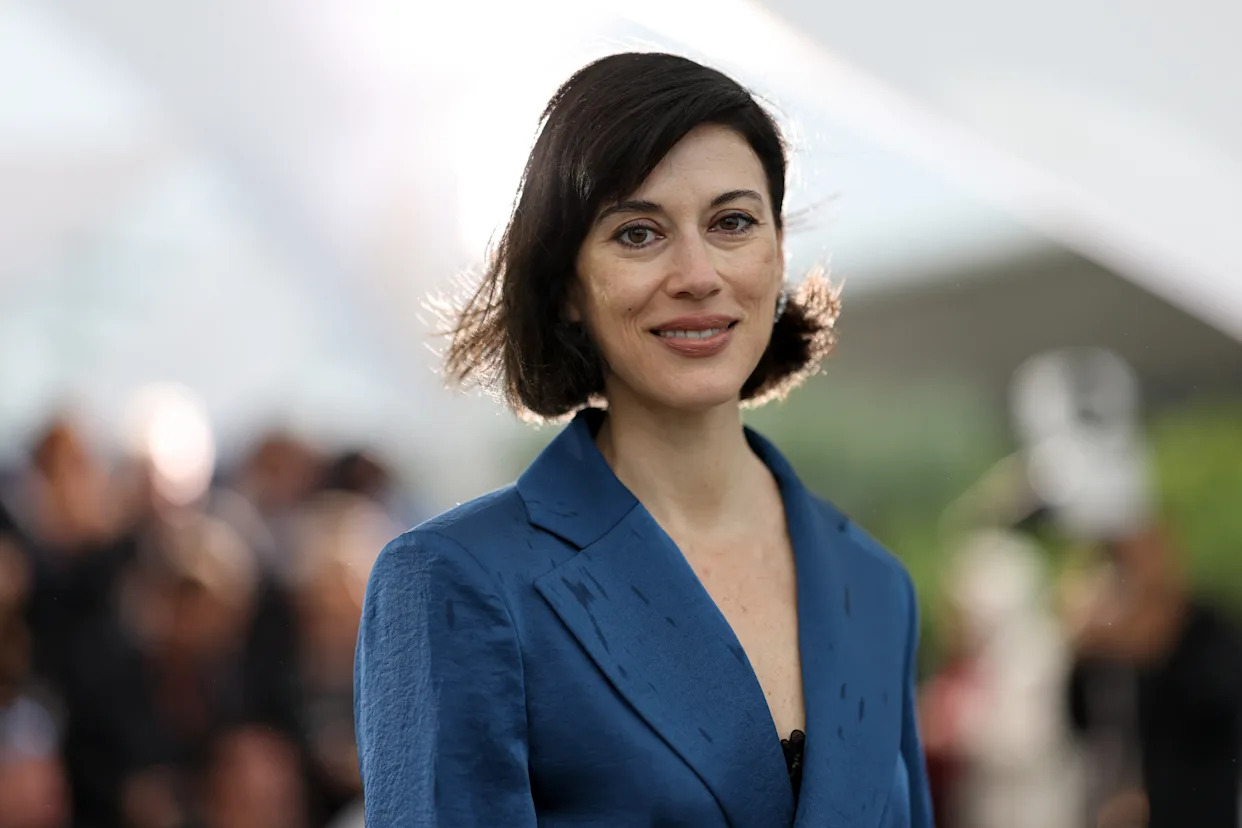
The Palestinian drama “All That’s Left of You,” directed by and starring actor/filmmaker Cherien Dabis, premiered at Sundance this year to solid reviews and played festivals from San Francisco to Sydney and, now, Karlovy Vary. It still hasn’t announced a U.S. distributor, and with its unflinching and emotional look at the context that explains the ongoing decimation of Gaza, that’s sadly unsurprising given the industry’s timidity around the subject.
But the strong Karlovy Vary audience response buoyed hopes that this film will be seen more widely. Amid cries of “Free Palestine!” during the lengthy applause for “All That’s Left of You” at the Czech Republic festival, Palestinian-American Dabis seemed the most moved. She waved at audiences in the balcony of the packed 1,131-seat Grand Hall theater in Hotel Thermal, known for its healing waters in a spa town that boasts more than a dozen mineral springs, some freely accessible to the public through taps in the city’s colonnades.
More from IndieWire
Superman's Underwear Returns: A Brief History of the Man of Steel's Red Trunks
Alamo Founder Tim League Launches Private Movie Theater Experience in New York
AdvertisementAdvertisement#«R25e4kr8lb2m7nfddbH1» iframe AdvertisementAdvertisement#«R45e4kr8lb2m7nfddbH1» iframeIt wouldn’t be a stretch to say that this epic intergenerational drama’s positive reception was also healing for the film team on several levels. Best known as the director of “Amreeka” and on series like “Only Murders in the Building” and “Ramy,” Dabis said in an introduction, “At a time when Palestinian stories are being censored, suppressed, shadow-banned, ignored, erased, I’m so grateful to the Karlovy Vary International Film Festival for highlighting and championing this film.”
During an IndieWire interview at the festival, Dabis said her cast had flown in from places like the Israeli city of Haifa, the Jordan capital of Amman, and New York. Three in the cast are the Bakris, actual family members consisting of father Mohammad (“The Night Of”), and brothers Saleh (“The Blue Caftan”) and Adam (“Omar”). “Yet here we are, despite the odds and overwhelming obstacles. We made it. And I must say that with the horrific events of the last few weeks, I really didn’t know if we would all make it here,” Dabis said.
Dabis began to think about her film, which she calls the “Palestine origin story,” shortly after her lesser-known second film, “May in the Summer,” came out in 2013. She said she didn’t feel “mature enough” at the time to have a point of view about the story — until the pandemic, “when it just flowed right out of me because I’d been sitting on it for so long.”
“All That’s Left of You” spans eight decades, following the trials and generational trauma of a former middle-class family in Jaffa in 1948 through various notorious phases of Palestinian history, punctuated by events in 1978, the first intifada (or “uprising,” in Arabic) in 1988, and finally in 2022 in Tel Aviv.
AdvertisementAdvertisement#«R2ae4kr8lb2m7nfddbH1» iframe AdvertisementAdvertisement#«R4ae4kr8lb2m7nfddbH1» iframeDabis plays Hanan, the gently determined wife of Salim (Saleh Bakri); he’s the only character the film tracks across its 74-year wing span. By the time we understand how trauma can scar and embed itself across a family’s psyche, we also come to appreciate the slight misdirection underlying Dabis’ choice to introduce Hanan just after the opening credits in which a teen character, Noor (Muhammad Abed Elrahman), appears to have been hit by a bullet during a protest in the West Bank.
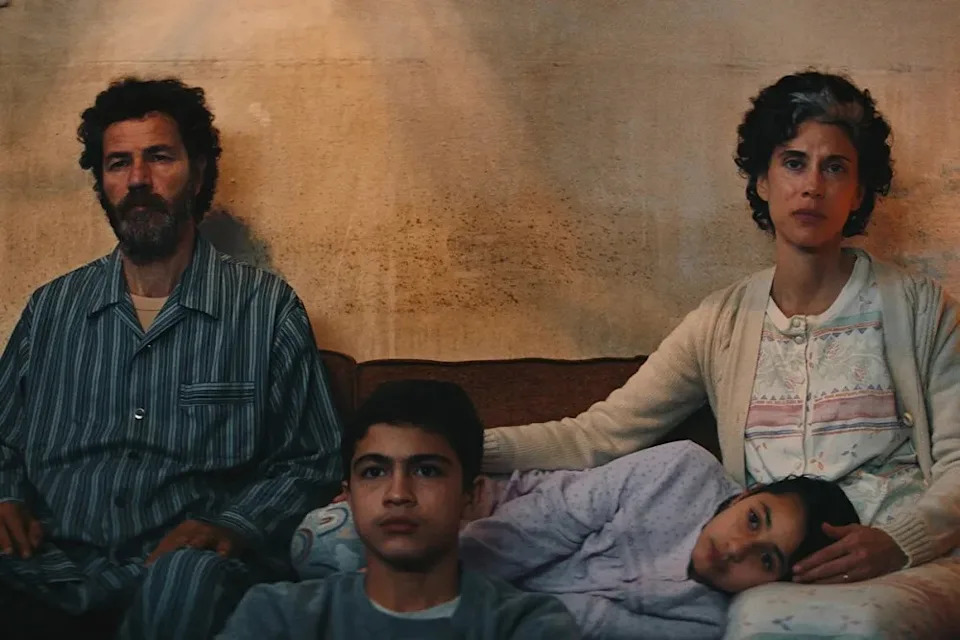 ‘All That’s Left of You’Courtesy Sundance
‘All That’s Left of You’Courtesy SundanceDabis, well-aged via makeup, has a slight tremor in her voice when she breaks the fourth wall in the film and says, “You don’t know very much about us. It’s OK, I’m not here to blame you. I’m here to tell you who is my son. But for you to understand, I must tell you what happened to his grandfather.” While it’s revealed much later who her character Hanan is addressing, Dabis’ film accomplishes a parallel purpose: to enlighten the audience about the contemporary origin of Palestine and provide a history lesson that brings us to the current war on Gaza.
“With this film, I wanted to tell the story of how Palestinians became refugees, how some of them ended up in exile, how slowly Palestinians were thrown off their land, made to feel like they had to either leave or escape, and sometimes not allowed to return,” Dabis said. “I don’t think people know that story. I do think that this is the first film of its kind to tackle [this history]. The structure was one of the first things that came to me. Given the output of Palestinian films in the last few years, we are now seeing people really waking up to what has been happening and understanding that it’s vital. We’ve seen how Palestine has the ability to impact the entire world right now.”
In a recent interview, Palestinian-Danish filmmaker Mahdi Fleifel, a friend of Dabis whose narrative feature debut “To A Land Unknown” is now in U.S. theaters, took exception to the term “refugee” being applied to Palestinians, and insisted rather that they are people “exiled from the world.” I asked Dabis whether she personally parses the terms “refugee,” “exiled,” and “diaspora” differently.
AdvertisementAdvertisement#«R2he4kr8lb2m7nfddbH1» iframe AdvertisementAdvertisement#«R4he4kr8lb2m7nfddbH1» iframeShe said, “My dad was exiled in 1967. He had to get foreign citizenship in order to return to his homeland and just visit his parents. He was not allowed to go back ever to live in Palestine. I saw him treated as an outsider in his own homeland. I think of my father as exiled and as kind of a refugee. I’m Palestinian American, and I was the first in my family to be born in the U.S., so I feel a little bit more a part of that identity, of that establishment. I do and I don’t. I feel very much like a first-generation hyphenated American, where I don’t quite fit in either place. I’m not quite American enough for the Americans, and not quite Arab enough when I go to the Arab world. So it’s like this in-between space. I always kind of hated that growing up, but I’ve come to embrace it now because I feel it is a perspective that is somewhat unique. At least in my filmmaking, it allows me to really see two very different perspectives.”
Dabis also shared the tremendous challenges in the film’s production, since the timeline careened into the events that precipitated the war on Gaza. “We prepped the entire film in Palestine for five months. We were two weeks away from shooting when October 7 happened. It became pretty clear very quickly that the foreign crew wanted to leave. They were scared. I totally understand. Then, it also became very clear that we weren’t going to be able to shoot the film there. It was becoming difficult to move around. Checkpoints were closing, cities were being sealed off in the West Bank. We were hearing fighter jets, we were feeling the bombs sometimes. It was frightening. So we fled and went to Cyprus.”
She continued, “In a way, the movie did live what any Palestinian lives. I found myself having to look for Palestine everywhere but Palestine as I searched for locations all over again. I had to start from scratch. We had to raise a lot more money. We had to add months of prep all over again. We went to Cyprus. I found what I could there. We went to Jordan, shot the majority of the film in Palestinian refugee camps in the north of Jordan, which was a very moving experience [as] we got to really work with Palestinian refugees on the ground. Then, for the rest of the movie, we went to Greece, shooting the locations [set in] the old city of Jaffa and the Tel Aviv & Haifa locations in Athens and on Rhodes Island.”
Despite the challenge, which she surely doesn’t wish on any other filmmaker, Dabis said that the movie “was really a gift for all of us who worked on it. To be able to create during a time of destruction, we all felt it. To be able to just pour our hearts and our grief into something together.”
AdvertisementAdvertisement#«R2ne4kr8lb2m7nfddbH1» iframe AdvertisementAdvertisement#«R4ne4kr8lb2m7nfddbH1» iframeDabis, who is Emmy-nominated for directing the “silent” episode on Hulu’s “Only Murders in the Building,” said her period of TV directing between her second feature and “All That’s Left of You” made her a much more confident filmmaker, actor, and writer, “because I really got to roll up my sleeves on some of the shows I worked on, even help from the script stage. I got really lucky to do some capsule episodes on ‘Ramy’ and ‘Only Murders,’ [where] I got to deviate from the style of the show and do my own thing, which gets you noticed on television.”
Casting for features, she said, is the most important job as a director, and that certainly was the case for “All That’s Left of You.” Quite impressive is the performance of the actor playing the younger Noor (Sanad Alkaberete), who has an outburst in a pivotal moment of the film that ends up influencing his grandfather’s (Mohammad Bakri) and father’s (Saleh Bakri) generational responses to trauma.
Here, Dabis couldn’t help but gush. She said, “I was relentless with my casting directors. I just kept saying no. They were getting worried. We were five days away from shooting, and I still didn’t have young Noor. They just stopped looking for kid actors and put out a massive call. And when I found him, I was just like, that’s the kid. It was just finding someone who embodied the spirit of the character, a kid who was so street smart. He was such a little troublemaker, in the most endearing and charming way. You could see he had a spark of anger in him. He would go there. That was just kind of half the battle, and then really making him feel very safe on set to be himself. Working with him was like working with an adult. When he was in, he was locked in. I mean, he was able to imagine himself in those circumstances, and that was really the main thing, right?”
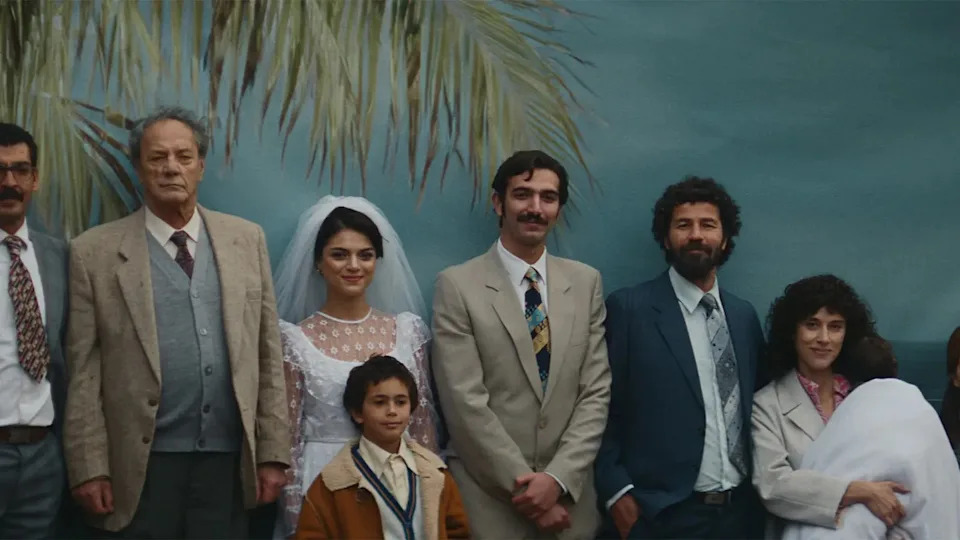 ‘All That’s Left of You’Courtesy Sydney Film Festival
‘All That’s Left of You’Courtesy Sydney Film FestivalDabis became audibly emotional when I asked her if she saw her personal biography as a diasporic filmmaker intertwining with some of the characters’ trajectories. Dabis must have been 12 years old growing up in Ohio when the older Noor character in the film participates fatefully in the first intifada in the West Bank. She said, “When I write, I am all the characters in some way. The older Sharif [Bakri] is like my father. Hanan is a part of me that I wanted to explore, a part that is spiritual and earthy and is the storyteller and wants to tell stories in order to heal. [Older] Noor is like that more rebellious teenager, the one who is angry and wants the world’s attention.”
AdvertisementAdvertisement#«R2te4kr8lb2m7nfddbH1» iframe AdvertisementAdvertisement#«R4te4kr8lb2m7nfddbH1» iframeShe continued, “I didn’t live the first intifada, but it lived in me. Like all of the stories that I heard about Palestine growing up. We visited Palestine shortly after the first intifada. I felt it in these visceral ways. I think we all have that rebellious spirit of anti-occupation. Like leave us alone, like get off of our land, like get the army out of our villages. I wanted to explore the Palestinian longing, and inability to let go, the making sure that the next generations all remember Palestine. But I also wanted to explore the generation of the characters who are like, ‘Enough, enough! Let it go. This is killing us. This is not helping us.’ I grew up with both sides inside me and around me. I wanted to represent the full spectrum of the Palestinian experience in this film.”
Dabis’ hope is that the film, from its festival run and eventually to theaters, becomes “mainstream. I’m so happy that people are learning so much from it. Someone came up to me after the screening [in Karlovy Vary] and said this film reminded them of their own parents during the occupation of the Czech Republic during the Second World War. I was like, wow. I hope this movie will have many lives, beginning with a theatrical release, then a streaming release, and then as an educational platform. That would be absolutely a dream.”
“All That’s Left of You” premiered at Sundance 2025 and played Karlovy Vary. It is currently seeking U.S. distribution.
Best of IndieWire
The Best Thrillers Streaming on Netflix in July, from 'Vertigo' and 'Rear Window' to 'Emily the Criminal'
The Best Lesbian Movies Ever Made, from 'D.E.B.S.' and 'Carol' to 'Bound' and 'Pariah'
All 12 Wes Anderson Movies, Ranked, from 'Bottle Rocket' to 'The Phoenician Scheme'
Sign up for Indiewire's Newsletter. For the latest news, follow us on Facebook, Twitter, and Instagram.



![North America Proppant Market Insights- Strategies for Success in a Competitive Landscape [2028]](https://noticiasdecostarica.com/zb_users/upload/2025/07/20250716104858175263413816724.jpg)






